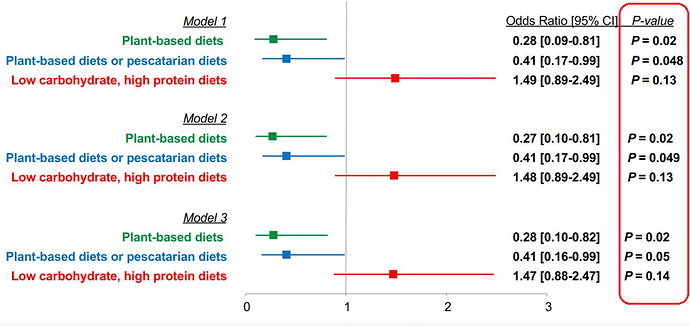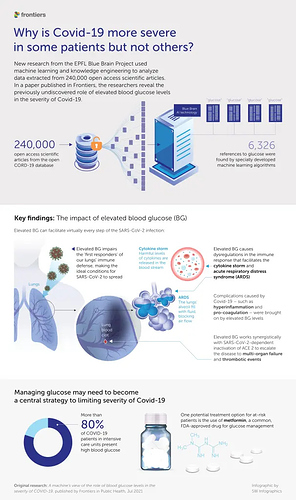I wonder what is going on here then? I interpret this as healthy user bias being over interpreted for agenda driven gain. My personal scope on this is the “plant-based” participants ate plenty of fatty fish, or were concurrently ketotarian.
The findings show that eating less meat and dairy and more fruits and vegetables can reduce the risk of severe infection by as much as 73%. However, a low-carb keto diet appears to significantly increase the likelihood of becoming severely ill.
Kim H, Rebholz CM, Hegde S, et al. Plant-based diets, pescatarian diets and COVID-19 severity: a population-based case–control study in six countries. BMJ Nutr Prev Health . Published online June 7, 2021. doi: 10.1136/bmjnph-2021-000272
https://nutrition.bmj.com/content/early/2021/05/18/bmjnph-2021-000272



